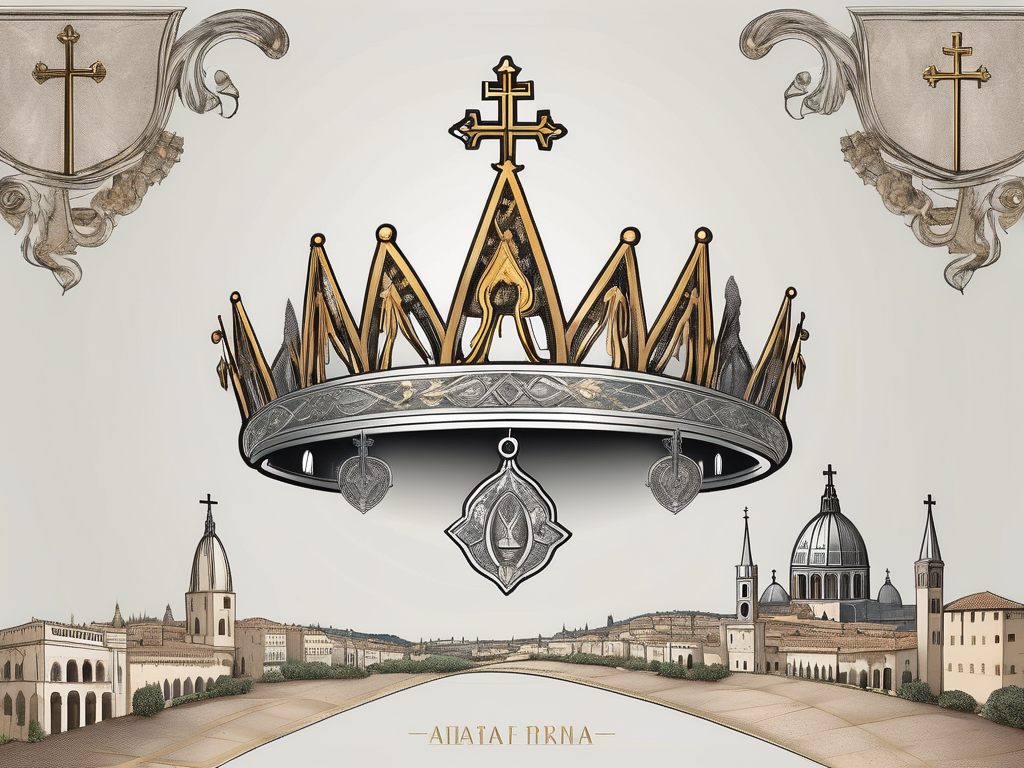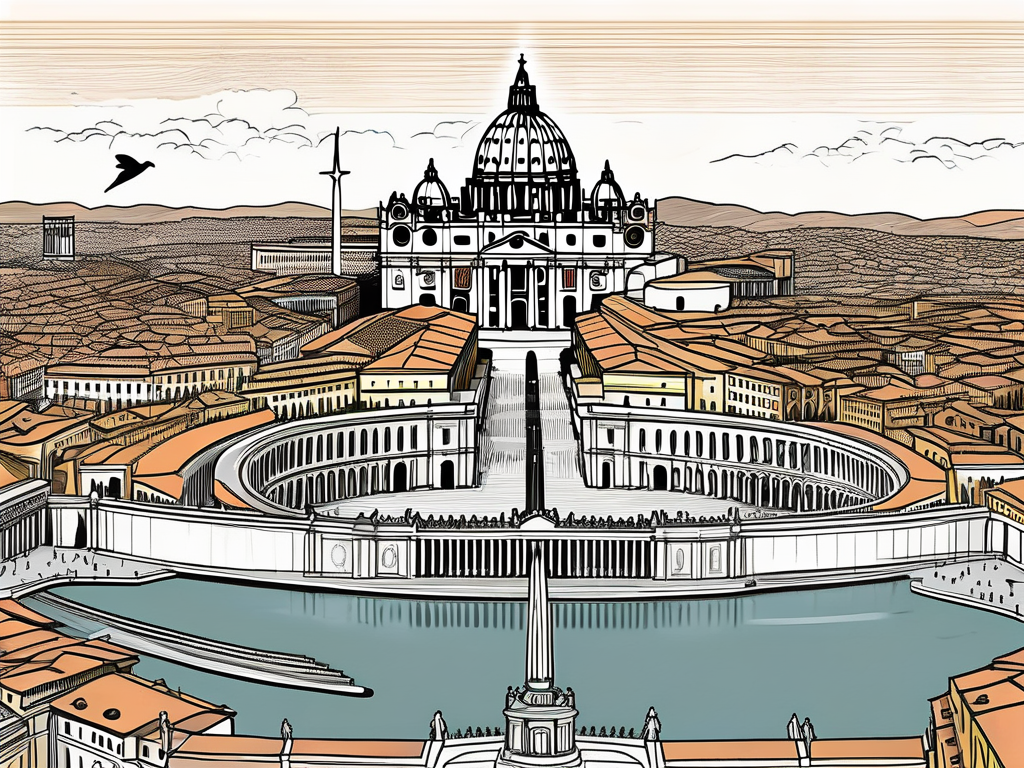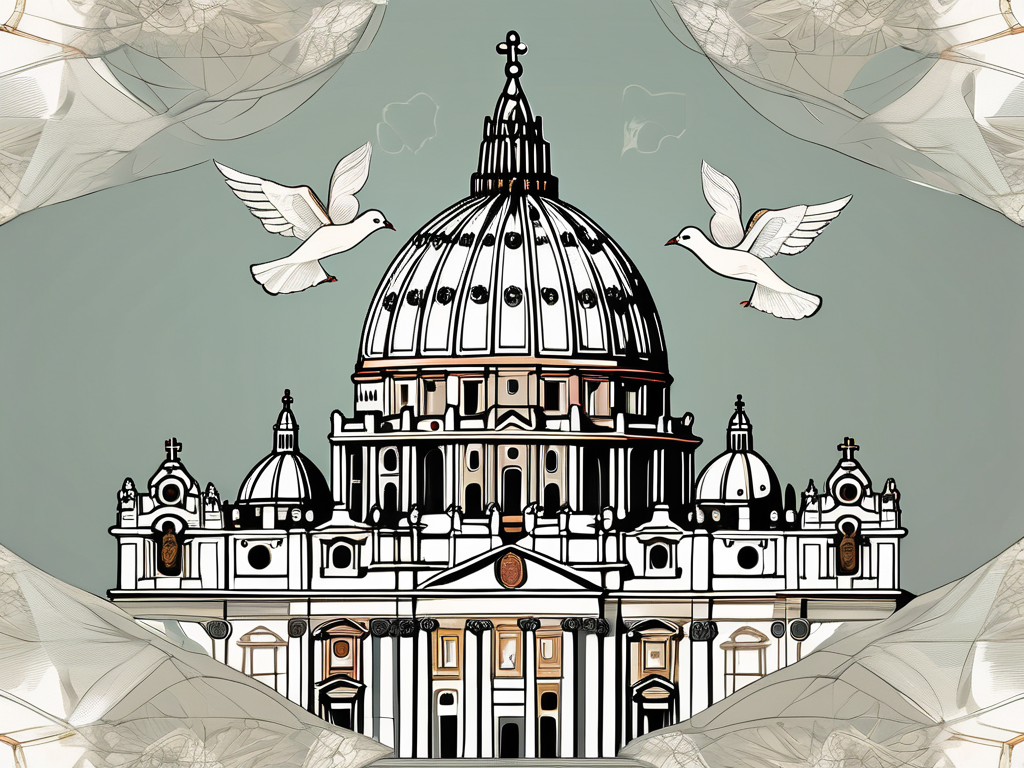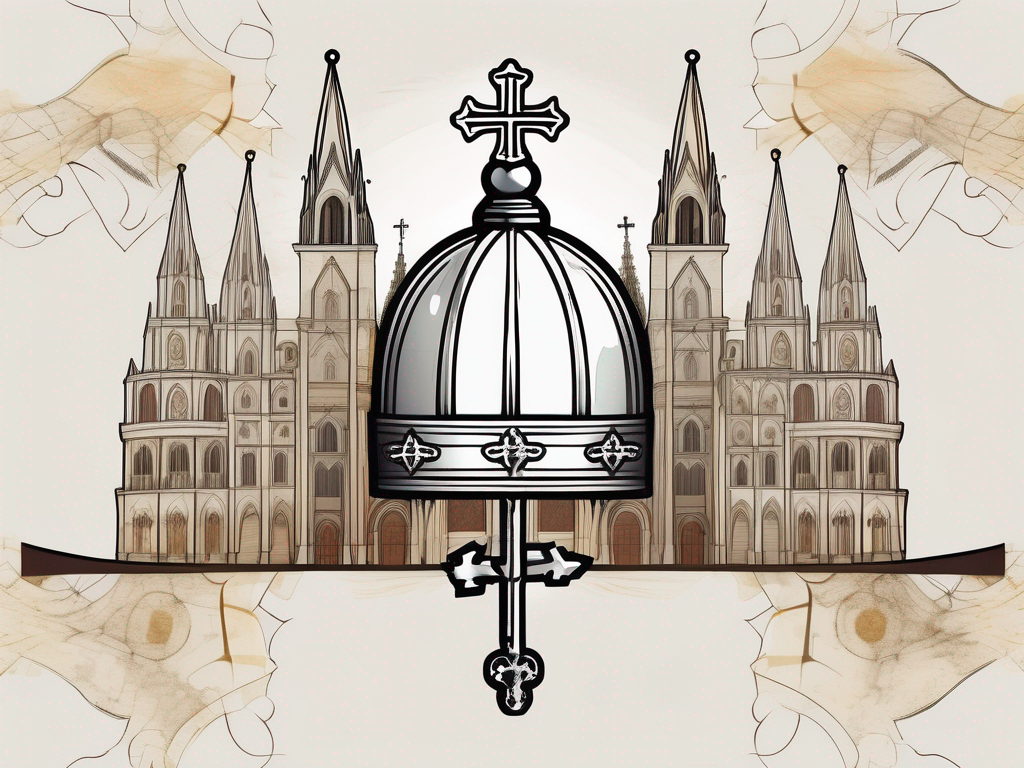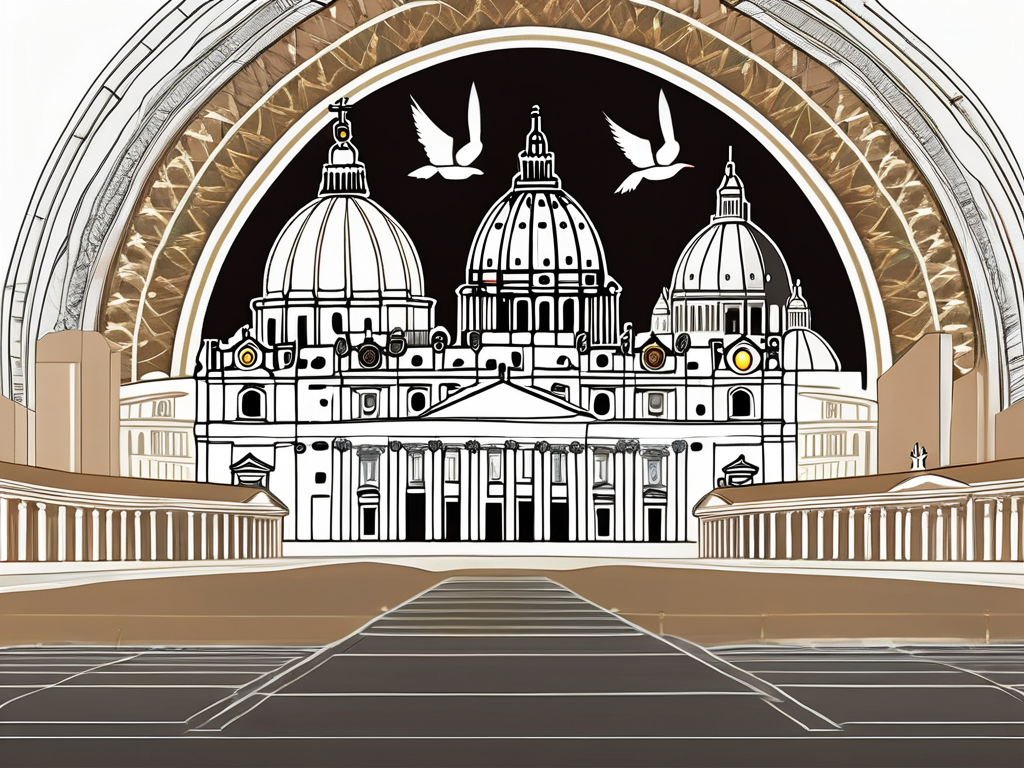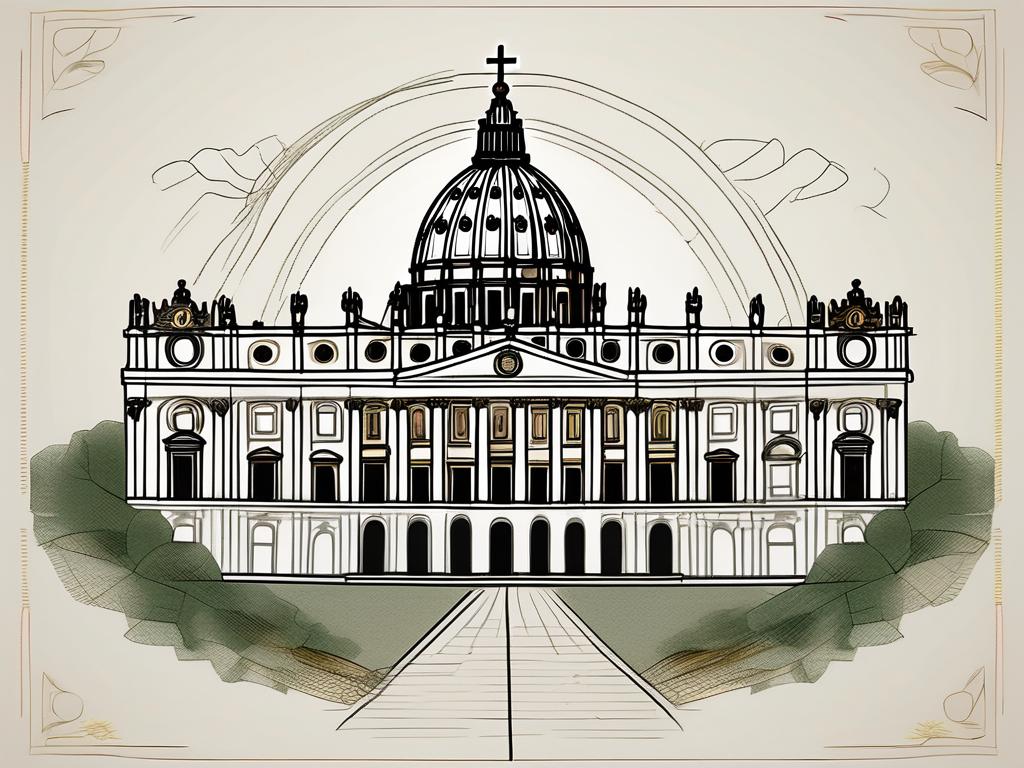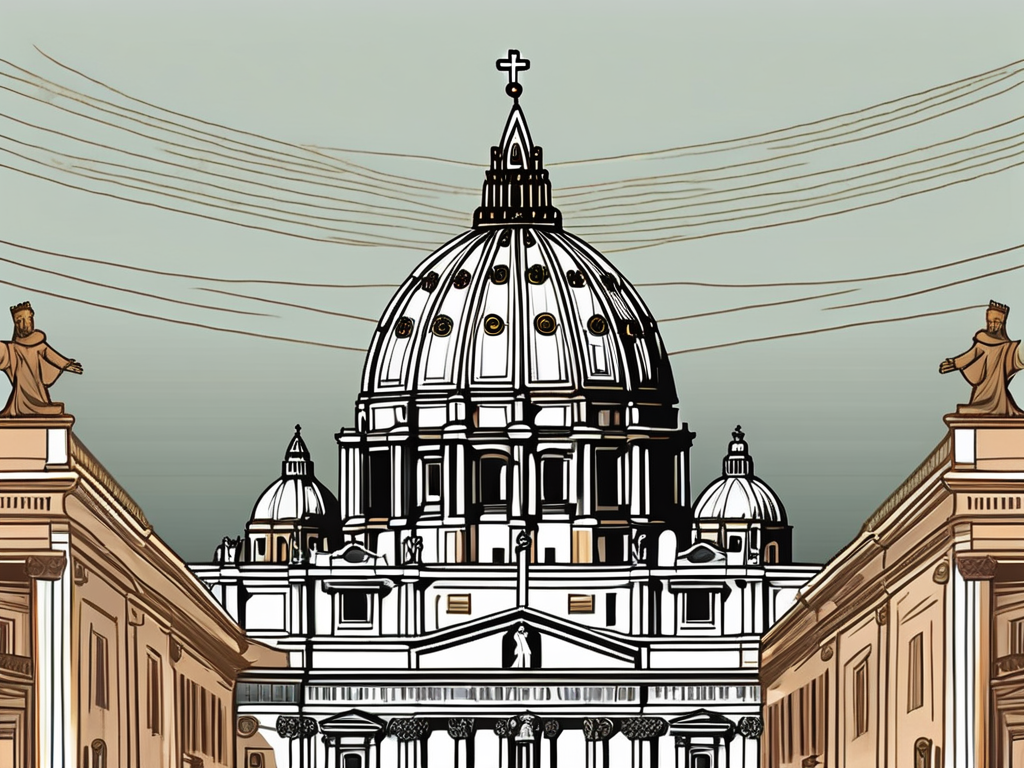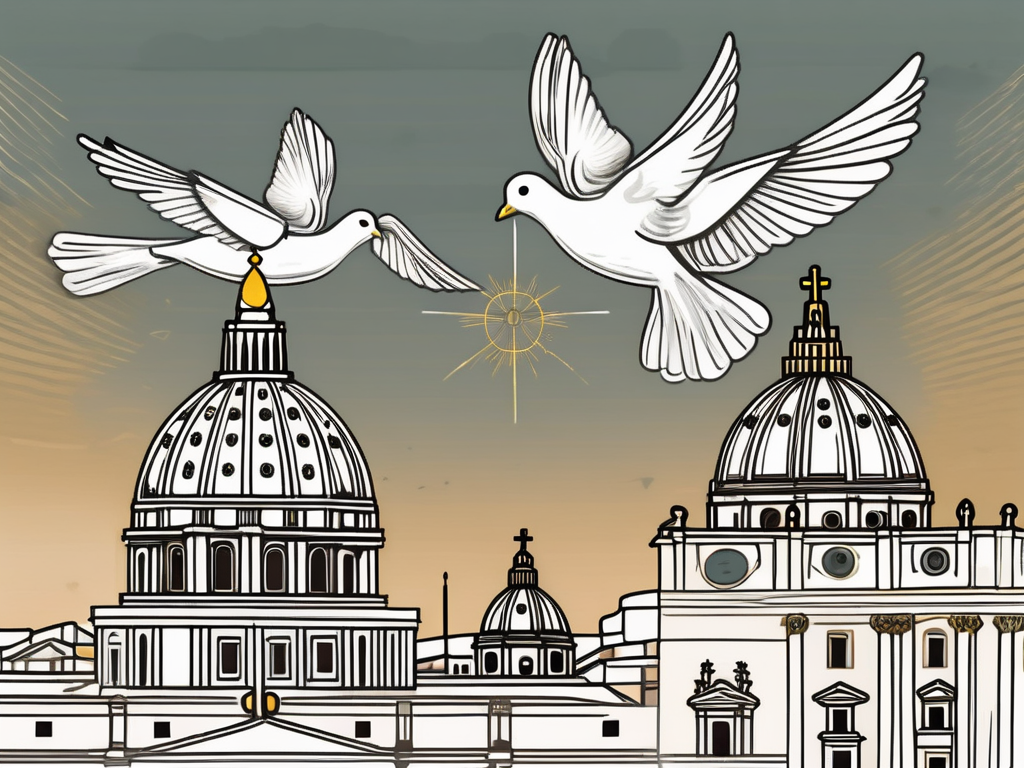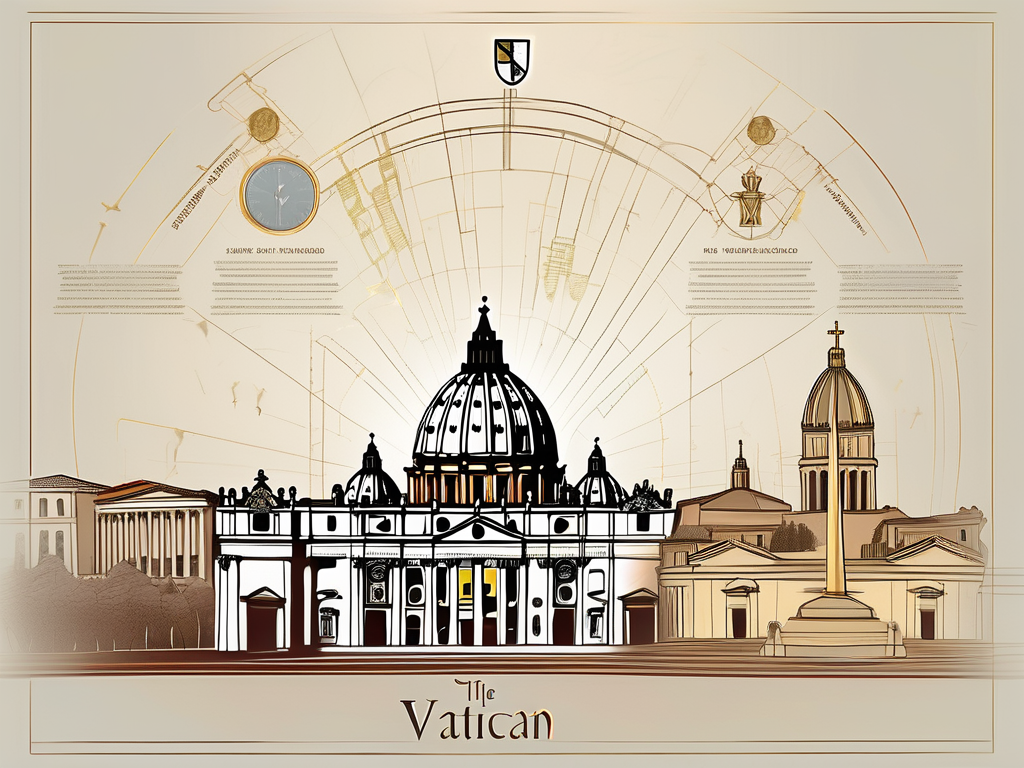Pope Innocent VI, whose birth name was Etienne Aubert, was a significant figure in the history of the Catholic Church. His life was filled with ups and downs, triumphs and challenges. From his early years to his papacy, he left a lasting impact on the church and the world. Let’s delve into the fascinating story of Pope Innocent VI and explore his legacy!
Early Life and Education of Pope Innocent VI
Every great leader has a humble beginning, and Pope Innocent VI was no exception. Born into a modest family in the small town of Mont in Southern France, his parents raised him with love and taught him the values that would shape his character.
Etienne Aubert’s educational journey was the cornerstone of his future accomplishments. He displayed a natural curiosity and a thirst for knowledge from a young age. His parents, recognizing his potential, made sure he received the best education possible. They sought out renowned tutors and mentors who could nurture his intellectual growth.
One of his early mentors, a wise and learned scholar, recognized the spark of brilliance in young Etienne. He took him under his wing and introduced him to the world of philosophy and theology. It was during these formative years that Etienne’s passion for learning truly blossomed. He immersed himself in the works of ancient philosophers, delving deep into their teachings and contemplating their relevance in the modern world.
Despite his family’s limited means, they made many sacrifices to provide him with excellent opportunities. They would save every penny they could to purchase books and other educational resources for their ambitious son. Etienne, grateful for their unwavering support, would spend countless hours devouring the knowledge contained within those pages.
As he grew older, Etienne’s reputation as a prodigious scholar spread far and wide. Scholars from prestigious institutions sought his company, eager to engage in intellectual debates and discussions. His sharp intellect and eloquence in expressing his thoughts captivated his peers, leaving a lasting impression on all who encountered him.
Word of his brilliance eventually reached the ears of the Catholic Church hierarchy. Recognizing his potential, they offered him a scholarship to study at one of the most prestigious theological schools in Europe. This opportunity was a dream come true for Etienne, and he embraced it with unwavering determination.
During his time at the theological school, Etienne’s thirst for knowledge only grew stronger. He immersed himself in the study of scripture, theology, and canon law. He spent countless hours poring over ancient manuscripts, deciphering their hidden meanings, and seeking a deeper understanding of his faith.
It was during this period that Etienne’s spiritual journey truly took flight. He felt a profound connection to God and a calling to serve the Church. His studies became more than just an intellectual pursuit; they became a path towards fulfilling his purpose in life.
With each passing year, Etienne’s reputation as a brilliant theologian and scholar continued to soar. His insights and interpretations of complex theological concepts garnered him widespread acclaim. He became a sought-after advisor, both within the Church and among secular leaders.
Etienne’s humble beginnings and unwavering dedication to his studies laid the foundation for his future as Pope Innocent VI. His journey from a small town in Southern France to the highest position within the Catholic Church serves as an inspiration to all, reminding us that greatness can emerge from even the most humble origins.
Ascension to Papacy
After years of dedicated service to the church and a reputation for wisdom, Pope Innocent VI was elected as the 199th pope in 1352. The news reverberated throughout the Catholic world, and people had high expectations for the new pontiff. With great humility and a deep sense of responsibility, he assumed the role of leader of the church.
Election and Papal Coronation
Upon his election, the world watched as Pope Innocent VI experienced his papal coronation, a sacred ceremony filled with tradition and symbolism. Adorned in the rich regalia of his office, he was anointed with holy oils, invoking blessings upon his new journey as the Vicar of Christ.
Pope Innocent VI’s coronation speech struck a chord with the masses. He spoke of his commitment to justice, compassion, and unity. These qualities would define his papacy and set the stage for his endeavors to come.
Challenges Faced in the Early Years of Papacy
As with any new endeavor, Pope Innocent VI faced his fair share of challenges during the early years of his papacy. The church was grappling with multiple crises, including political tensions and the Black Death pandemic. Guided by his unwavering faith and unyielding determination, he tackled these obstacles head-on.
Pope Innocent VI tirelessly sought solutions to these challenges, proving himself to be a leader with not only a deep spiritual understanding but also a practical approach to the problems at hand. His ability to navigate these troubled waters earned him respect and admiration among the clergy and the faithful alike.
Major Contributions and Reforms
Pope Innocent VI’s papacy was marked by significant contributions and reforms that shaped the course of the Catholic Church and its relationship with the world.
Diplomatic Achievements
One of Pope Innocent VI’s most notable achievements was his astute diplomatic approach. In an era of complex political dynamics, he skillfully maneuvered the intricate web of relationships between countries. His diplomatic efforts sought to bring peace and stability to Europe, fostering dialogue and understanding among nations.
Under his guidance, the Catholic Church played a vital role in mediating disputes and establishing harmonious relations between conflicting parties. Pope Innocent VI’s natural charisma and keen intellect were central to his success as a peacemaker.
Church Reforms and Decrees
The church was not immune to internal challenges during Pope Innocent VI’s papacy. He recognized the need for reforms to address the moral and administrative shortcomings that had plagued the institution. Through a series of decrees, he brought about crucial changes that revitalized the church and restored faith in its leadership.
Pope Innocent VI’s reforms included addressing issues such as corruption, nepotism, and the proper training of clergy. He placed a strong emphasis on education, urging clergy members to pursue knowledge and intellectual growth. These reforms brought about a renaissance of spirituality and integrity within the church.
Controversies and Criticisms
No papacy is without its controversies, and Pope Innocent VI’s reign was no exception.
Disputes with Secular Authorities
Throughout his papacy, Pope Innocent VI found himself entangled in disputes with secular authorities. The political landscape of the time was tumultuous, and clashes between church and state were not uncommon. His unwavering commitment to the principles of the church often put him at odds with powerful rulers.
Although these conflicts were challenging, they served as a reminder of Pope Innocent VI’s unwavering dedication to upholding the values he believed in. He fearlessly defended the autonomy of the church and the spiritual authority he held, regardless of the consequences.
Internal Church Conflicts
Internal disputes within the Catholic Church also presented challenges for Pope Innocent VI. Different factions within the clergy held varying opinions on key theological and administrative matters. These divisions threatened to weaken the unity of the church.
Pope Innocent VI, with his characteristic wisdom and patience, worked tirelessly to bridge these divides. He encouraged dialogue and sought common ground, ensuring that the church remained united in its mission and purpose. His efforts to foster harmony within the clergy laid the groundwork for future generations of priests and bishops to continue strengthening the church.
Pope Innocent VI and the Arts
Pope Innocent VI’s patronage of the arts left an indelible mark on the cultural landscape of his time.
Patronage of Renaissance Artists
Pope Innocent VI recognized the transformative power of art as a means of expressing spirituality and beauty. During his papacy, he actively supported and commissioned works of art from renowned Renaissance artists.
His patronage not only enriched the artistic heritage of the era but also served as a testimony to the church’s appreciation for human creativity and the potential of art to inspire and uplift the spirit. The legacy of Pope Innocent VI’s patronage can still be witnessed today in the masterpieces that grace museums and cathedrals around the world.
Architectural Contributions
In addition to his patronage of the visual arts, Pope Innocent VI also made significant contributions to architectural projects. He oversaw the construction and renovation of numerous churches and cathedrals, leaving a lasting imprint on the physical landscape of the Catholic Church.
Pope Innocent VI’s architectural vision combined both grandeur and spirituality, creating spaces that inspired reverence and awe. The majestic structures he helped bring to life serve as a testament to his dedication to the faith and his commitment to fostering a deep connection between believers and their places of worship.
In Conclusion
Pope Innocent VI’s life and legacy continue to resonate with us today. From his early years of humble beginnings to his ascension to the papacy and his subsequent contributions, his impact on the Catholic Church and the world cannot be overstated.
His commitment to justice, compassion, and unity, coupled with his efforts to reform and strengthen the church, left an enduring mark on history. Through his patronage of the arts, he cultivated a rich cultural heritage that continues to inspire and delight generations.
Pope Innocent VI’s life is a testament to the power of faith, intellect, and dedicated service. His story serves as an inspiration to us all, reminding us that great leaders are not born but shaped by their experiences, values, and unwavering determination.
